More about: Skuggsja
"A tree without nourishment will rot at its roots, and a tree without roots will fall," says Wardruna founder Einar Selvik, pulling up his collar against the cold Oslo breeze. "These roots are important to us as human beings. When you build your national identity upon lies and what is written by the victors, you build on baseless grounds."
When it comes to exploring one's history, the music of Wardruna works to dig up the roots and hold them up to your face to show where you've come from, and what's missing in the present - based around the ideas and instruments of the Vikings and ancient Norse.
'Skuggsja' is the old Norse word for 'reflection', and the title of Einar's collaboration with Ivar Bjørnson of metal icons Enslaved. An astounding album entitled 'A Piece For Mind And Mirror' is out this week, before the project rolls into London this weekend. It's time to look back, and take what's yours.
"The Nazis stole some of our symbols in the world war because Christian monks in the middle ages said that we were this and that, and now we know better," says Einar. "We need to look into what's the truth and ask questions. We're allowed to ask questions now, we weren't back then because they just said 'as it is written'. Satan was thrown out of heaven because he questioned God, we take back the right to reflect."
Before Wardruna, Enslaved and Skuggsja invade the UK once again this weekend, we caught with Einar to discuss his own roots and art, politics, religion, his relationship with metal and just what this project means to him.
So one would assume that the way you work is quite instinctual?
"There is no difference between Einar and my work - I don't differentiate. I'm basically on 24/7, but when I work I am quite instinctual. I tend to go on gut feeling and what feels right, on all aspects of Wardruna; that's why I don't play many concerts. I'm very selective. I have a very strong, I have a very strong vision and opinion with what I want or don't want."
What came first, the lifestyle or the music?
"These things have been there since I was a child. That interest and that passion for history. I remember my father, he was like a walking encyclopaedia when it came to the sagas and stuff. When you live here, going through nature you see that, sensing where these huge battles were. That sparked some images and an interest that really stuck. When we started to learn about it in school, I became really fascinated because it was such a different way of thinking than we do now. Now, we think more linear, more black and white. Back then, you had these gods and no one was just good or evil, they were more human.
"They also had a different concept of time where things go in circles instead of a line. The way we learn these things in schools, the way we teach our young here in Norway. It's really bad and really poorly done. It makes it impossible to take it seriously. The mythology is squeezed into this cartoonish version, and because the sources are so scattered and fragmented, it's difficult to really get a grasp and understand it. They're oversimplify it and squeeze it down to one page. I have a really strong drive to changing that, and showing people that they shouldn't view our heritage and past through the eyes of Christian medieval monks. That's not going to be good or correct,very often it's the victors who dictate history."

It's great how what you do isn't a re-enactment by any means either.
"I definitely don't want it to be re-enactment. That would saying 'oh this is just the past and how they did it back then' - I want to highlight things that are as relevant today as they were 1,500 years ago. Things we can learn from the past. We tend to think that these people are really primitive and that when Christianity came we got really smart.
"Europeans have never been as stupid as they were for the first 800 years of Christianity in the dark ages, when information was kept to just a few people and others were not allowed to question or to learn. I think we have a lot to learn, especially these days when we are faced with different religions and different cultures. Back then, it was much more welcoming. The conflict that came later wasn't about religion, it was about centralising power? Does that sound familiar?"
Obviously everything you do is very considered but still natural - but how do you balance that with having a career? You can sell out these huge venues and the demand to see you is pretty insane.
"I actually consider that a fantastic bonus. I started Warduna because I needed to, and when I did it, I did it only for myself - I wanted someone to interpret these themes on their own premises. I do actually consider it a bonus. I was really surprised when the reactions to the music started coming - that started instantly. Obviously there were more people than me, also wanting there to be music like this. I do it for myself, I would do it even if there was nobody coming to my concerts. I'm very grateful every day that I'm allowed to do this for a living. "
So there's never 'a market' in mind?
"I don't care about release cycles, if labels are happy or unhappy."
So about Skuggsja - how long have you and Ivar known each other, and when did you decide to work together?
"I've known him since my early teens, basically - through the metal community in Bergen. On a few occasions, we actually did work together like 15 years ago on some small projects that never really happened, but I always really liked him and respected his work. He's a really professional guy and a 'doer'.
"Last year was the celebration of the 200th anniversary of the Norwegian constitution and we were asked if we would want to write a commission piece to it. We sort of said 'yes, if we are allowed to criticise the constitution', and we were. It was in the spirit of freedom of speech, and they wanted someone to represent the Norwegian Norse history. Even though we work in totally different formats, we have it the name 'Skuggjsa', which is the Norse word for 'mirror' or 'reflection', so what we do is reflect on ourselves as a nation through the eyes of history. What we saw when we boiled down our thoughts, was that even though we work in different musical formats, we saw that the thoughts behind our music was quite similar. The whole journey of working together has been really rewarding and almost too easy.
"Now it's grown into a broader cultural event, rather than just a metal gig or whatever."
Another thing said about this collaboration was that it celebrates the core and values that have always lain at the deepest heart of metal. What would you say those shared values and that shared spirit might be?
"Ha, that sounds like something Ivar would say! Personally, I don't know what that means - but the metal movement has always stood for going your own way and being the goat rather than the sheep. In that sense, I think I know what Ivar means and I totally agree. For me at least, metal isn't a community, it's more of an individual thing - you tread your own path. I think Norway needed to be stirred up in terms of religious freedom, and I think we were quite stuck up and I think what the metal movement in Norway did in terms of these things was move some important boundaries. Celebrating that is a good thing."

And now that freedom allows you to shine a light on these atrocities from the past through your music?
"Yes, and it's sort of about celebrating these mad politicians. It would kind of be the same as if ISIS take over Europe then in 500 years we celebrate them as saints that saved us from our sins. Christianity brought us into darkness, so calling a spade a spade and highlighting some of the forgotten heroes is a reoccurring theme on the album. It was actually about reducing democracy."
And you see that today as well?
"Yes. Even though I dabble with the past, I don't see myself as an antiquarian. I want to make it meaningful for today. We live in today,after all."
And what about the live Skuggsja show itself - how would you describe the difference in energy for it, and the overall spectacle?
"It's very intense. If you can imagine seven of Wardruna on stage and five of Enslaved - both bands with massive soundscapes. The music itself is quite big with large choirs, and it's very vocally-based. It's a very challenging piece to perform as well, but it's good to have a challenge."
And what does it mean to take it to London?
"The response we got last time we played with Wardruna at Queen Elizabeth Hall in 2013 was amazing, and I've always wanted to go back. But in a historical sense, I think it's quite fun for the idea of the 'returning Norse man to British shores'. But we come with our cultural artillery this time and wish to trade." believe things were so much better back then, but we are poor in comparison to what they had."
This week, London By Norse will be a three-day spectacular in the capital to celebrate 200 years of the Norwegian constitution with a range of awesome workshops, gigs and much more with the legendary Enslaved and the Nordic folk project, Wardruna. During the events, Nordic metal icons Enslaved will celebrate their 25 years together as a band with three huge shows across the city - one at The Dome and another at The Forge before culminating with Skuggsja at The Coronet.
Skuggsja will be held on Saturday 19 March - a 'white knuckle' multimedia, art and music experience of historical and cultural exploration, with songs composed by Wardruna’s Einar Selvik and Enslaved’s Ivar Bjørnson, that will coincide with an album release via Season Of Mist Records.
For tickets and more information on the Skuggsja show, visit here.
Visit the London By Norse website for information and tickets regarding the individual events and passes to the whole weekend.


Aurora: A delicate tapestry of angelic vocals, swooping strings, irresistible synth-pop and epic, cinematic soundscapes is what Aurora weaves into a totally inescapable world of her own, where the sensual meets the vulnerable. We're a little bit in love - she is going to be massive. Key tracks: 'Runaway', 'Running With The Wolves', 'Murder Song'
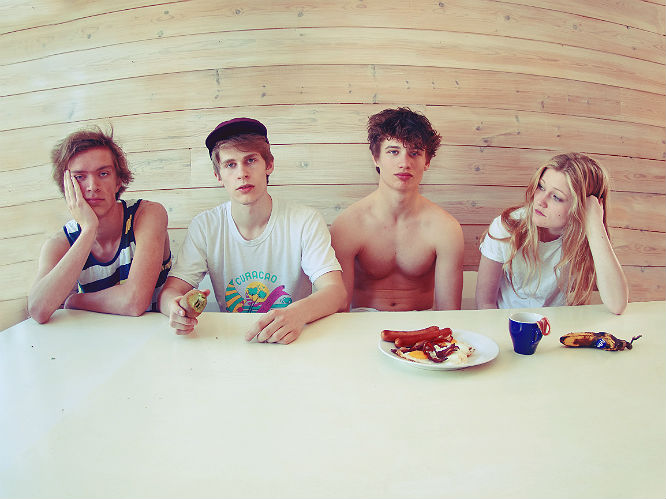
Slutface: We don't care if their name offends you - we're going to be saying it A LOT in the next 12 months, and so should you. With the riot-grrrl attitude of Sleater-Kinney met with the pure rush of Blood Red Shoes, the emerging Norwegian quartet Slutface throw out infectious pop punk riffs and irresistible choruses that demand every moment of your attention. Key tracks: 'Bad Party', 'Angst', 'Call To Arms'
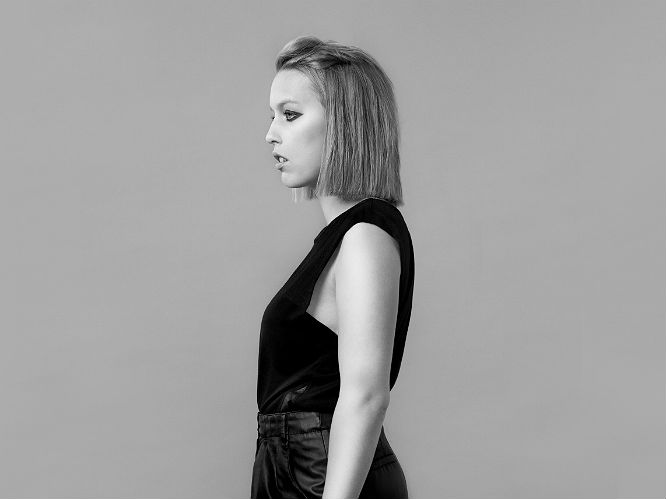
Bendik: As captivating as her appearance suggests, Bendik specialises in that shimmering dreampop that seems to flow from Norway like so much water into the Fjords. Here we have an aching melancholy met an ambitious post-rock backing, and a singer who gives her absolute all to her performance. Utterly enchanting. Key tracks: 'Hjertebank og kulde', 'Her', 'Morket foles morkere'
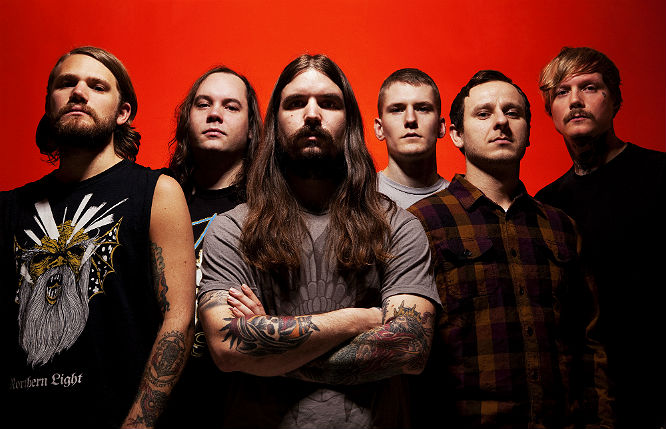
Kverletak: An uncompromising live band (the frontman wears an owl over his face, yes really) that need to be seen to be believed. But this band are far from a gimmick. Terrifying as they may be, what they produce is a unique brand of intricate but anthemic stoner metal like you've never heard before. Key tracks: 'Evig Vandrar', 'Blodtorst', 'Braune Bren'
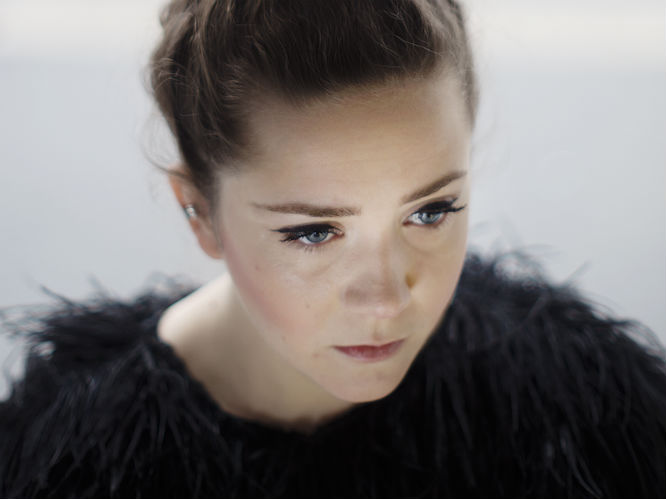
Emilie Nicolas: With the dark pop-noir melodrama of Lykke Li and the streetwise sass and beats of Banks, it could be easy for Nicolas to disappear in a seemingly endless sea of sultry songstresses, but the fact of the matter is that there's a piercing edge to this rising Norwegian star that puts her in a league of her own. With a No.1 album in Norway to her name, we don't doubt it will be too long until the rest of the world are under her spell. Key tracks: 'Pstereo', 'Fail', 'Nobody Knows'

Susanne Sundfor: With six albums to her name (numerous topping the Norwegian charts) and having collaborated with the likes of M83 and Royksopp, her influence on bringing credibility to the dancefloor over the last decade is never in question. So to many of you, we're probably preaching to the choir - but we won't rest until she's recognised as the universal electro Goddess she deserves to be. Key tracks: 'Delerious', 'Fade Away', 'Accelerate'
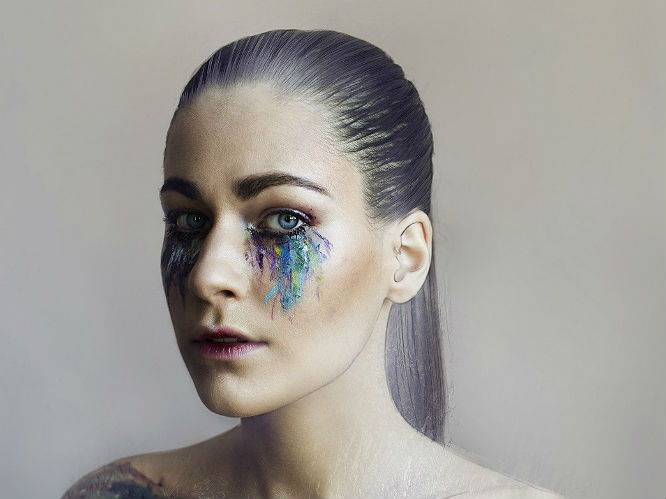
Farao: The insanely talented Kari Jahnson can play pretty much every instrument. Her sheer understanding of music is probably what sets her deep and driving brand of folky electro in a league of her own. Her debut album, Til It's All Forgotten drops on 11 September. Get her in your life. Key tracks: 'Bodies', 'Hunter', 'The Hours'
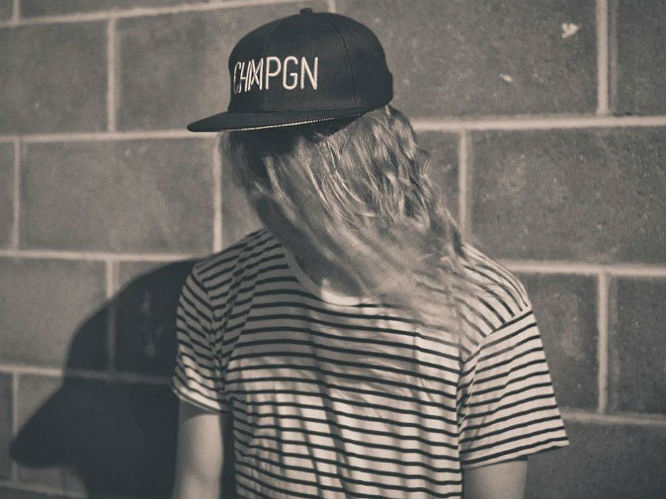
Cashmere Cat: You may know him for working with Ariana Grande or his awesome remixes of the likes of Lana Del Rey and 2 Chainz, but his own futuristic take on chilled electro meets R&B is blissed out enough to send you floating over the North Sea. Key tracks: 'Mirror Maru', 'With Me', 'Adore (ft Ariana Grande)'
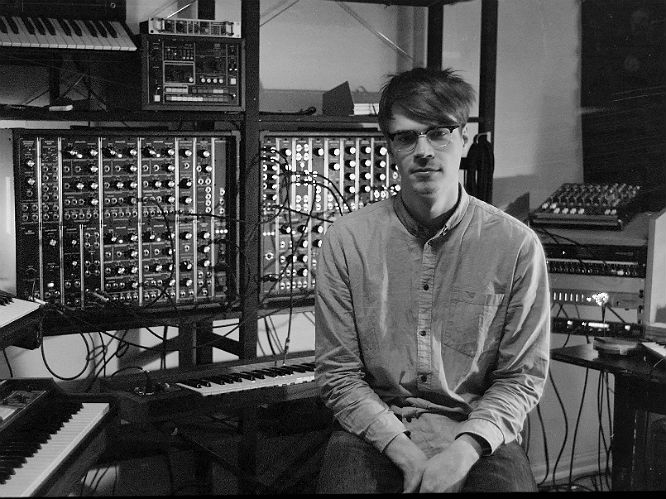
Andre Bratten: Do you like your space disco to be dark but sexy? Then this Oslo producer is the only man you need. Key tracks: 'Be A Man You Ant',
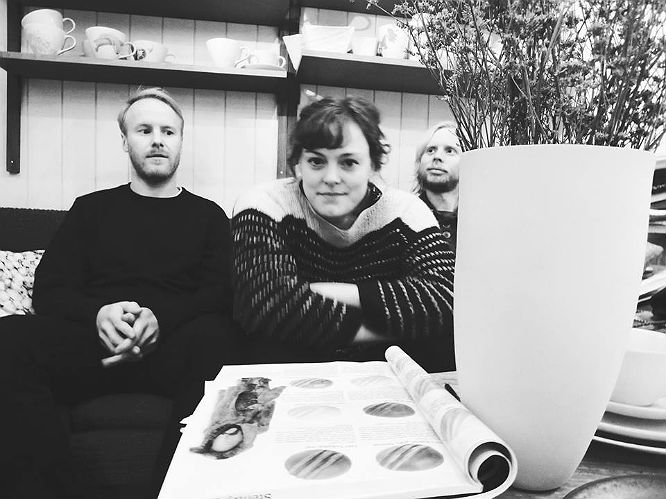
Building Instrument: A wonderfully weird whirpool of ethereal folk hidden in a haze of dizzying, warped, ambient post-rock. This is music to get lost to. Key tracks: 'Historia', 'Alt e Bra', 'Bli Med'
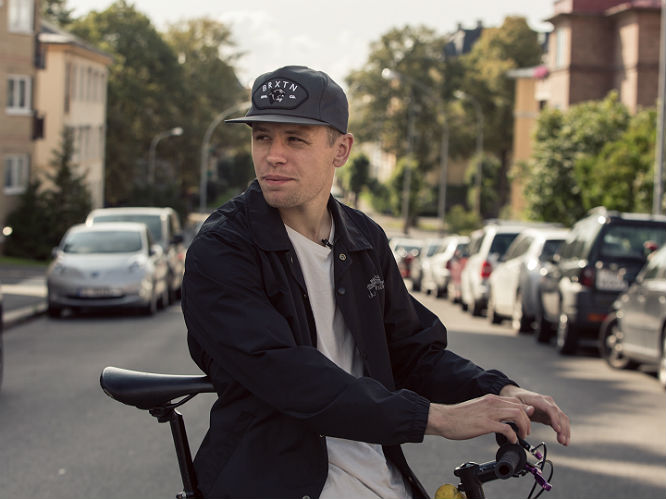
Ivan Ave: The world needs more Nordic rap, and this brings just the right amount of old school class and effortless, chilled-out groove to lead the wave. Key tracks: 'Forks', 'Portals', 'Honey Dip'
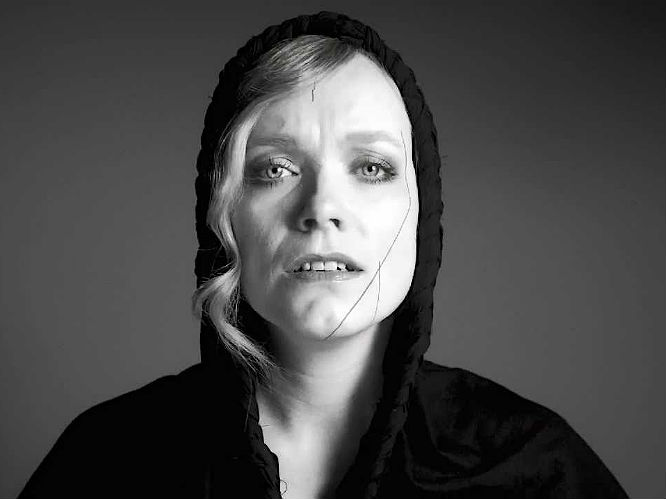
Ane Brun: A runaway train of raw-nerved emotion, bursting straight out of this Nordic treasure's ribcage. Using the most bare elements with such an expertly dramatic effect, it feels like you're experiencing a full opera in a song. Key tracks: 'Do You Remember', 'Directions', 'These Days'
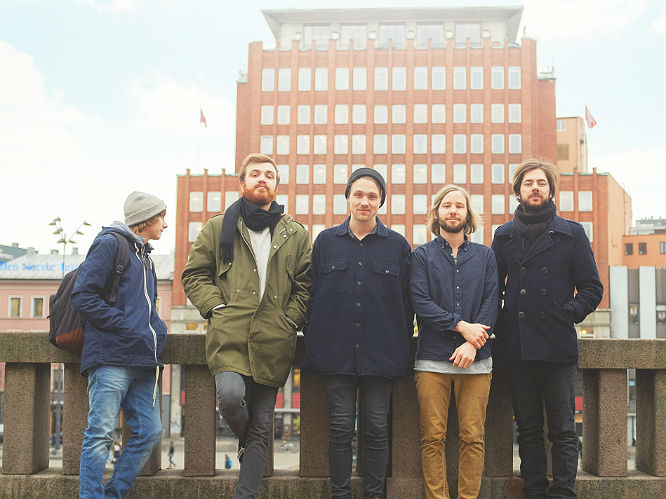
Drape: Imagine Mew and The Flaming Lips fighting over a ball of wool. Key tracks: 'Pie In The Sky', 'Together We Are Pstereo', 'When You Wake Up Again'
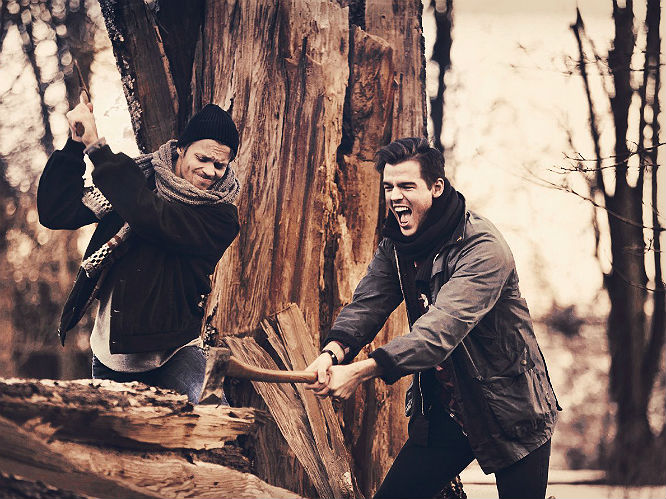
Alfred Hall: Brilliant soaring disguised as bubbling and danceable synth-pop songs - this Nordic duo have all bases covered without ever being cutesy or twee. This is the sound of summer. Key tracks: 'Lose That Gun', 'Safe & Sound', 'Someplace Beautiful'
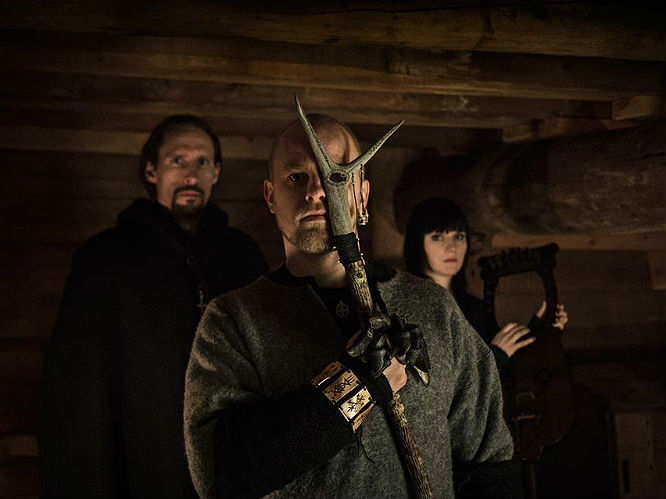
Wardruna: Bringing ancient Nordic Viking folk music a modern day sound sense of purpose, prepare to go to another world with Wardruna. Key tracks: 'Helvegen', 'Blood Eagle', 'Hagal'

Thea Hjelmeland: She can play anything with strings - including our hearts. What she makes is a kind of fairytale witch-folk pop on a scale to rival the likes of Sigur Ros. We discovered her when she played at the top of a ski slope in Oslo. Now you don't have to go to quite the same heights to get her in your life. Key tracks: 'Feathery', 'Perfume', 'Age'
Issue Four of the Gigwise Print magazine is on pre-order now! Order here.
More about: Skuggsja




